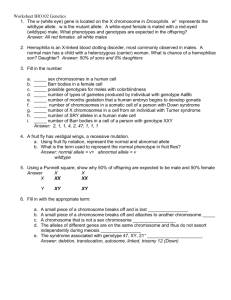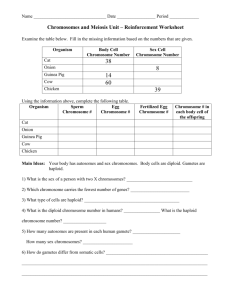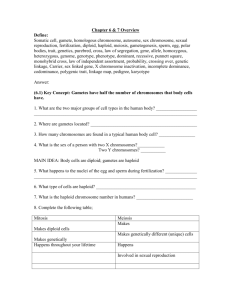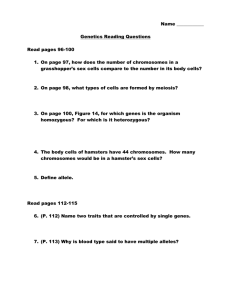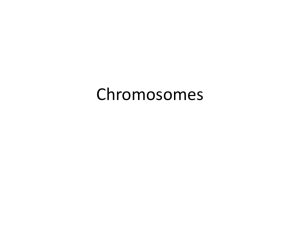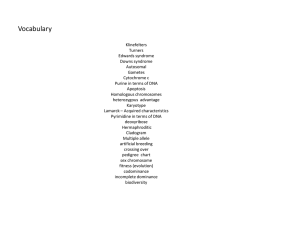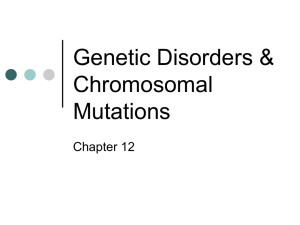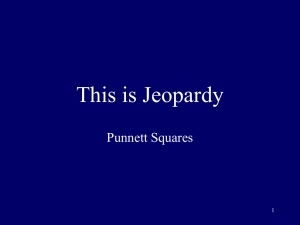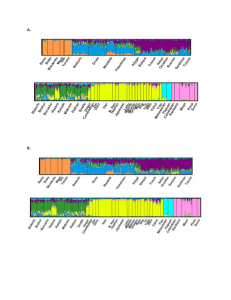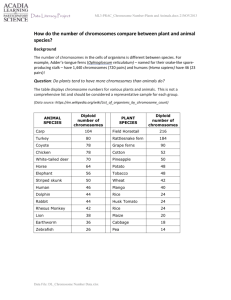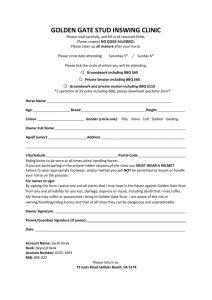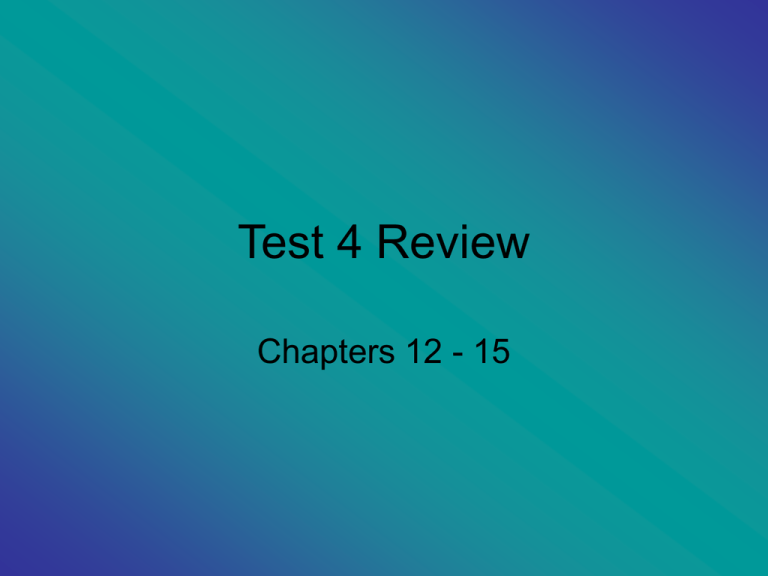
Test 4 Review
Chapters 12 - 15
Chapter 12
• Mitosis Stages
• Parts of the chromosome
– Centromere – center of chromosome
– Centrosome – in the cell
– Kinetochore – proteins that spindle fibers
attach to…all around the chromosome
• Cyclin, kinase activity, cell cycle
• What is the difference between a cell that
is haploid and a cell that is diploid?
• Which cells in the body would be haploid
and which would be diploid?
• How are chromatids and homologous
chromosomes different?
Chapter 13
• Meiosis
• Sex determination
• SRY gene
• Why are Mendel’s laws of segregation and
independent assortment important?
• When does crossing over occur and why
is it important?
What is it called when
the separation of
chromosomes does not
occur properly?
Chapter 14 & 15
• Genetics
• Punnet squares
• Pedigrees
•
•
•
•
X inactivation
Linked genes
Chromosome problems
Genomic Imprinting
• If a scientists crosses a homozygous tall
plant with a homozygous short plant, what
will be the genotype and phenotype ratio
for the F1 and F2 generation?
• You inherit a race horse and decide to put
him to stud. In looking over the stud book,
however, you discover that the horse’s
grandfather exhibited a rare disorder that
causes brittle bones. The disorder is
hereditary and results from homozygosity
for a recessive allele. If your horse is
heterozygous for the allele, it will not be
possible to use him for stud because the
genetic defect may be passed on. How
might you determine whether your horse
carries the allele?
• Four babies are born in a hospital, and
each has a different blood type: A, B, AB,
O.
• The parents of these babies have the
following pairs of bloog types:
– A and B
– O and O
– AB and O
– B and B
• Which baby belongs to which parents?

